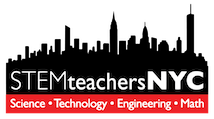Only 20% of NYC high school students have access to a physics course, and this issue is even worse for students of color.
In a research study authored by the NSF and National Center for Science and Engineering Statistics entitled Women, Minorities, and Persons with Disabilities in Science and Engineering, the authors detail how students of color and from high-needs communities have been consistently underrepresented in STEM fields, and continue to struggle with access to STEM college programs. The research also suggests that students of color often do not see themselves as a STEM professional, due in part to irrelevant curricular materials and the lack of diverse teacher leaders who reflect the communities in which they teach. Instructional practices are often ill-equipped to pull from student’s cultural heritage or everyday experience, with assessments like the New York State Regents devoid of similarly relevant content that is engaging and reflects the dynamic nature of true science and engineering practice. This lack of relevance and experience in STEM activities that have meaning thus decreases student’s aspirations to take on careers in a STEM field.
In NYC, the STEM equity gap is wider than most areas of the United States. Despite being the largest school system in the country, NYC is considered to be the most segregated. According to Chancellor Carmen Farina’s report Equity and Excellence for All: Diversity in NYC Public Schools, roughly 70 percent of its schools are segregated by race and income. Schools located in lower income communities receive fewer resources, and are often ill equipped to support teacher leaders, pilot innovative instructional practices, and develop materials that build meaning and relevance in STEM fields. This puts students of color and already marginalized communities at a distinct disadvantage when it comes to building STEM literacy and identify, and access to future career paths in STEM.
Our Culturally Responsive STEM Initiative brings together teachers from around the area to begin addressing these crucial issues of access and equity. To learn more click here.








